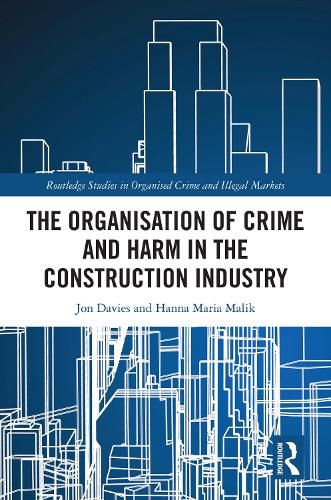Readings Newsletter
Become a Readings Member to make your shopping experience even easier.
Sign in or sign up for free!
You’re not far away from qualifying for FREE standard shipping within Australia
You’ve qualified for FREE standard shipping within Australia
The cart is loading…






Drawing on empirical work and secondary analysis from the UK and Finnish construction industries, this book contributes a deep-rooted analysis of construction industry harms that originate from corporate-industrialstate processes.
The UK context arguably represents a classic 'neoliberal' system categorised by privatisation of services and minimal regulation, whereas Finland broadly provides a 'social democratic' alternative with its relatively strong national regulation and public sector oversight of industry. These concepts interlink strongly with the notion of state-corporate crime, since this perspective shifts attention away from individualistic explanations for crime and harm towards symbiosis between states and corporations. This book argues that existing explanations based on organised crime and individual 'rogues' are insufficient to account for the wider range and subtlety of harms that occur in construction, and therefore offers a unique perspective into organisational, industry, and state dynamics in this sector.
An accessible and compelling read, this book will appeal to students and scholars of criminology, sociology, organized crime, and those interested in harms in the construction industry.
$9.00 standard shipping within Australia
FREE standard shipping within Australia for orders over $100.00
Express & International shipping calculated at checkout
Drawing on empirical work and secondary analysis from the UK and Finnish construction industries, this book contributes a deep-rooted analysis of construction industry harms that originate from corporate-industrialstate processes.
The UK context arguably represents a classic 'neoliberal' system categorised by privatisation of services and minimal regulation, whereas Finland broadly provides a 'social democratic' alternative with its relatively strong national regulation and public sector oversight of industry. These concepts interlink strongly with the notion of state-corporate crime, since this perspective shifts attention away from individualistic explanations for crime and harm towards symbiosis between states and corporations. This book argues that existing explanations based on organised crime and individual 'rogues' are insufficient to account for the wider range and subtlety of harms that occur in construction, and therefore offers a unique perspective into organisational, industry, and state dynamics in this sector.
An accessible and compelling read, this book will appeal to students and scholars of criminology, sociology, organized crime, and those interested in harms in the construction industry.